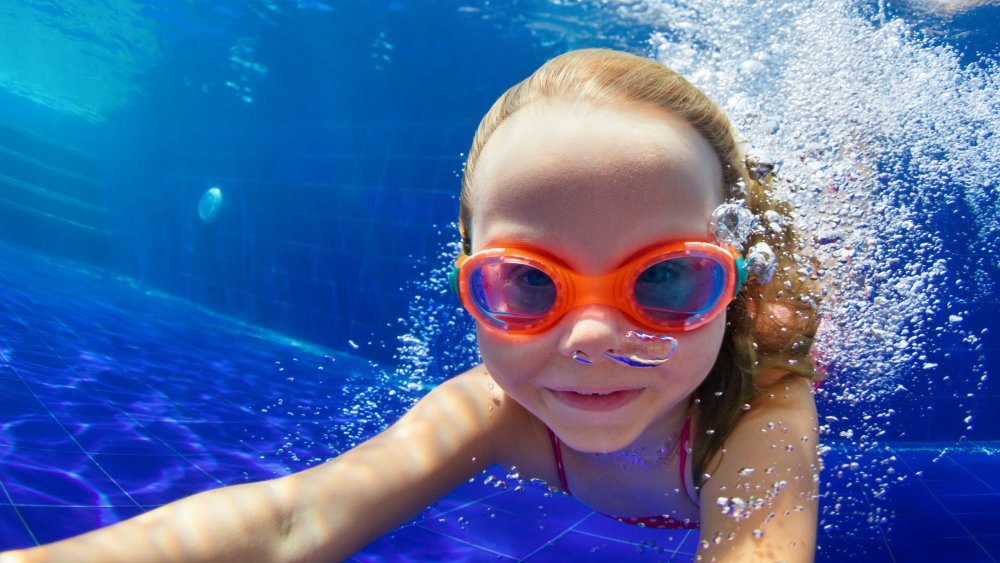What Happens To Your Body If You Swallow Pool Water
"All day I've faced a barren / waste without the taste of water, cool water." So wrote Marty Robbins, and so sang the Sons of the Pioneers (and about a jillion others), and while not many of us face the difficulty of being stranded in the desert without water (thank goodness) there's no question but that when the weather heats up, wherever you are, the idea of a body of water for dipping, splashing, even immersing becomes very very attractive.
Oceans, lakes, even streams and rivers have their own advantages (and dangers), but the public pool, especially for children, is a classic way to beat the heat. Jumping, splashing, diving (but no running, please) — and it's all perfectly safe, because we have better living through chemistry; specifically and most commonly, the addition of chlorine to pool water. However, too much coupled with too much exposure will result in kind of a greenish tinge to skin and hair. So why use it?
The theory is the same as that of chlorine in civic drinking water: keep the good, eliminate the bad, specifically waterborne bacteria and viruses. And no matter how often authorities request people to rinse off before they hit the water (which seems like coals to Newcastle for an eight-year-old in July), WebMD reports that people have an average of .14 grams of feces on their bottoms, which in turn will end up in the water of a public pool.
Some water is for swimming, not for drinking
Intestinal challenges like diarrhea make the odds worse, and if there's an "accident" in the water, from child or adult, that makes things even worse. And there are other possibilities which we will leave to your imagination.
Swallowing pool water, then, is not the best first choice for hydration. Adults tend to know this; kids are more enthusiastic and rambunctious, and some pool water is bound to end up in their mouths, and possibly swallowed. The chlorine itself, in small amounts, isn't going to hurt, but drink enough and chlorine poisoning can result, says Healthday. And just because the water is cool and clear doesn't mean it's totally sanitary, according to Shape. A 2017 report by the Centers for Disease Control and Prevention (CDC) finds that outbreaks of the parasite cryptosporidium (aka crypto) have doubled since 2014. Diarrhea results. It's one of the loosely (you should pardon the expression) defined recreational water illnesses.
Go ahead. Swim. Splash. Sing the "Baby Shark" song. Just don't drink the cool, clear water.

